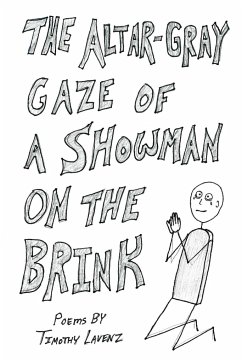
Laughing on the Brink of Humanity
An Exercise in Epihumanism
Versandkostenfrei!
Versandfertig in 1-2 Wochen
92,99 €
inkl. MwSt.
Weitere Ausgaben:

PAYBACK Punkte
46 °P sammeln!
What does it mean to be human? And, more precisely, what does it mean to be human now, with both humanism and the humanities in crisis? In answer to these questions, Laughing on the Brink of Humanity seeks not some essence of the human but rather an epiphenomenal manifestation-a sign of the human. The book finds such a sign in the joyless, painful, and often deadly laughter that resonates when we cross the barrier between what is human and what is not: animality, machinery, divinity. Jan Miernowski brings together a wide swath of discourses and figures, from Plato and the Bible through early m...
What does it mean to be human? And, more precisely, what does it mean to be human now, with both humanism and the humanities in crisis? In answer to these questions, Laughing on the Brink of Humanity seeks not some essence of the human but rather an epiphenomenal manifestation-a sign of the human. The book finds such a sign in the joyless, painful, and often deadly laughter that resonates when we cross the barrier between what is human and what is not: animality, machinery, divinity. Jan Miernowski brings together a wide swath of discourses and figures, from Plato and the Bible through early modern humanism, to Friedrich Nietzsche, Georges Bataille, Hannah Arendt, Claude Lanzmann, Spike Jonze, Tom Stoppard, and Michel Houellebecq. Looking for laughter on the brink of humanity-in literature and philosophy, natural science and film, theology and computer science-the book offers an exercise in epihumanism appropriate to our posthuman age.














